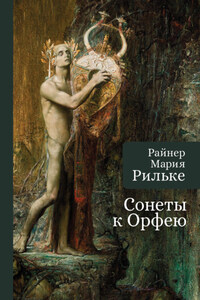CHAPTER I.
"A GRAND OPPORTUNITY."
"Hurrah, boys! here is a letter from home. At least, it is from the homeland, as it is postmarked New York. Who can be writing us from that city?" and the youthful speaker, in his exuberance of feeling, waved the missive over his head, while he began to dance a lively step.
"I know of no better way to find out than to open it, Harrie, or let one of us do it for you; you seem suddenly to have lost your faculty for doing anything rational yourself. Hand it to Jack if you do not want to trust me with it."
"Your very words, to say nothing of your impatient gestures, Ronie, show that you are not one whit less excited than I am over receiving some news from the great world outside of this lost corner," replied the first speaker, beginning to tear open the end of the bulky envelope he held in his hand.
"There must be a lot of news, judging by the size of the package," said the second, approaching so he could look over the shoulder of his companion while he tore open the covering.
"Go slow, lads," said a third person, who had been sitting slightly apart from the others, but who moved near to the twain now. "It won't do to get unduly excited in this climate."
The three were none other than our old friends of the jungles of Luzon, Ronie Rand, Harrie Mannering and Jack Greenland, whose exploits in opening up one of the great forest tracts on that island were described in "Cast Away in the Jungle," first of THE ROUND WORLD SERIES. They had not been long in Manilla, the capital of the island, since completing that hazardous undertaking, when an incoming steamer brought them the letter which awakened such an interest, and which was to play such an important part in their future actions. As its bulk indicated, it was a lengthy epistle, and this length was more than doubled in reading matter by the fine chirography which covered its large pages.
Standing where he could not scan the mysterious pages, Professor Jack fell to watching the countenance of Harrie Mannering as he followed with his eye the closely written pages. As he read, his features began to change their expression from gayety to seriousness, and by the time he had finished a puzzled look had settled upon his sunburned but good-looking face, and his lips, forming themselves unconsciously into a pucker, gave vent to a prolonged whistle. Then, as if to obtain a more comprehensive understanding of the message, he returned to the beginning, and was about to read it through again, when Jack said:
"Look here, boy, you are taking an unfair advantage of a fellow. You must know that I am just as much interested in news from the homeland as you, so read it aloud this time. If it is good news, I want to enjoy it with you; if it is bad news, then I certainly ought to share it with you."
"Forgive me, or rather us, Jack – for I am sure Ronie has seen every word – but it is all so strange and unexpected that my head is not quite clear yet as to whether I have been reading or dreaming."
"Then it is all the more necessary that I should hear it, as it is possible my poor head may help unravel the skein. You remember the story of the great novelist, Sir Walter Scott, who, upon recovering from a long illness, was given a book to read for amusement. But upon reading the book, he could get so little sense out of it that he feared he had lost his reason. In this perplexed state of mind he handed the work to another to read without giving his reason, while he waited anxiously for the result. She, after reading a few chapters, threw the book aside, declaring it was such senseless twaddle that she did not care to follow it any further, whereupon the great author breathed easier."
"No offense was meant, Jack, and I will try and make amends at once. In the first place, this is an invitation for us to start upon another undertaking somewhat similar to the one we have just completed."
"What! return to the jungles of Luzon?"
"No; it is to South America this time – to Venezuela. A party of men, some of whom are connected with the local government, are anxious to open up the interior of the country in quest of rubber trees. The writer, who is one of the company, and, I judge, an influential member, has recommended us as 'capable persons' – you needn't laugh, Ronie, for those are his words – to survey and engineer for the party. If we conclude to go, he wants us to meet him at Caracas as soon as possible. In the meantime, he will get everything in readiness to start as soon as we arrive. I am at a loss to know what to think of it. The writer, who is Colonel Rupert Marchand, is very enthusiastic over the scheme, and he seems anxious that we should come. I never thought the colonel was one to get wild over anything that was not likely to prove successful."
Jack made no reply in words, but took the letter from the hand of his young friend, and began to hastily run over its contents, saying, by way of apology for his action:
"You will pardon me, Harrie, but it may not be best for us to read aloud or talk to any great extent here. There may be those about whose motives are not friendly."








